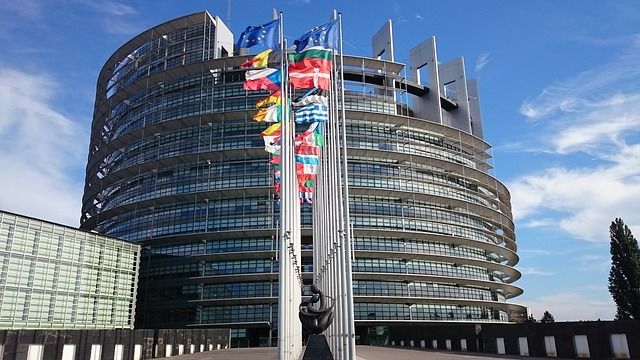Friday news roundup April 12, 2019

The Australian state of Tasmania made it optional to list gender on birth certificates. The first Australian state to pass such legislation, the bill was approved in the state’s lower house this week. It also removes a condition that had previously required transgender people to have surgery before their gender could be recognized. People aged 16 or over can also apply to change their listed gender without the approval of their parents. House of Assembly Speaker Sue Hickey called the passing of the bill “a historic occasion,” describing the result as being “not a win for any particular political party, but rather the dignity of the transgender community.” The state government, however, opposed the bill in its current form, arguing that recent amendments had not been properly considered.
The EU27 granted the UK an extension until Halloween to ratify its Brexit withdrawal agreement. In what’s being called a “flextension,” the UK can still exit the EU in advance of the deadline should the EU and UK ratify an agreement before October 31. The extension date ensures that the UK will not be involved in the appointment of the new Commission president or a new president of the European Council. However, if the UK hasn’t ratified the agreement by May 22 then it must take part in the European Parliament elections, which take place every five years, and are being held between May 23 and 26. Failing to meet this obligation would see the UK leaving the EU on June 1. The future UK-EU relationship will not be negotiated during the extension period, only once the UK has exited the EU.
Greece looks set to join a 16+1 coalition of China and CEE nations. The coalition, led by China, was established in 2012 as a way to boost trade and investment with Central and Eastern European countries. It is aligned with the “Belt and Road Initiative,” the Beijing government’s plan to boost global trade through infrastructure development. A formal announcement is expected today at a 16+1 summit being held in Dubrovnik, Croatia. Of the countries involved, 11 are also members of the EU and there have been growing concerns within that bloc about China’s expanding influence in the region. At the annual EU-China summit which concluded in Brussels on Tuesday, leaders from both sides signed a joint statement on the creation of a mechanism for monitoring each other’s pledges regarding the opening up of their markets. China has also stressed that any deals signed with CEE countries will comply with EU standards, rules, and laws.
Protests continue in Sudan as pro-democracy supporters demand a civilian-led government. The Sudanese President, Omar Hassan al-Bashir, was finally unseated after 30 years in power on Thursday by the country’s military following months of protests sparked by rising food prices. However, the arrival of al-Bashir’s transitional replacement, the country’s defence minister and a former confidante of the president, Lt. Gen. Awad Mohamed Ahmed Ibn Auf, has also met with resistance. General Ibn Auf outlined the terms of his interim leadership, including the release of political prisoners, a two-year transition steered by a military council, suspension of the Constitution, dissolution of the government, and curfews, which provoked further protests. Politicians around the world are appealing for calm and restraint, with many calling for a civilian-led transition which can provide the political and economic resources required to stabilize the country.
Read IZA article on trade policy and discrimination.